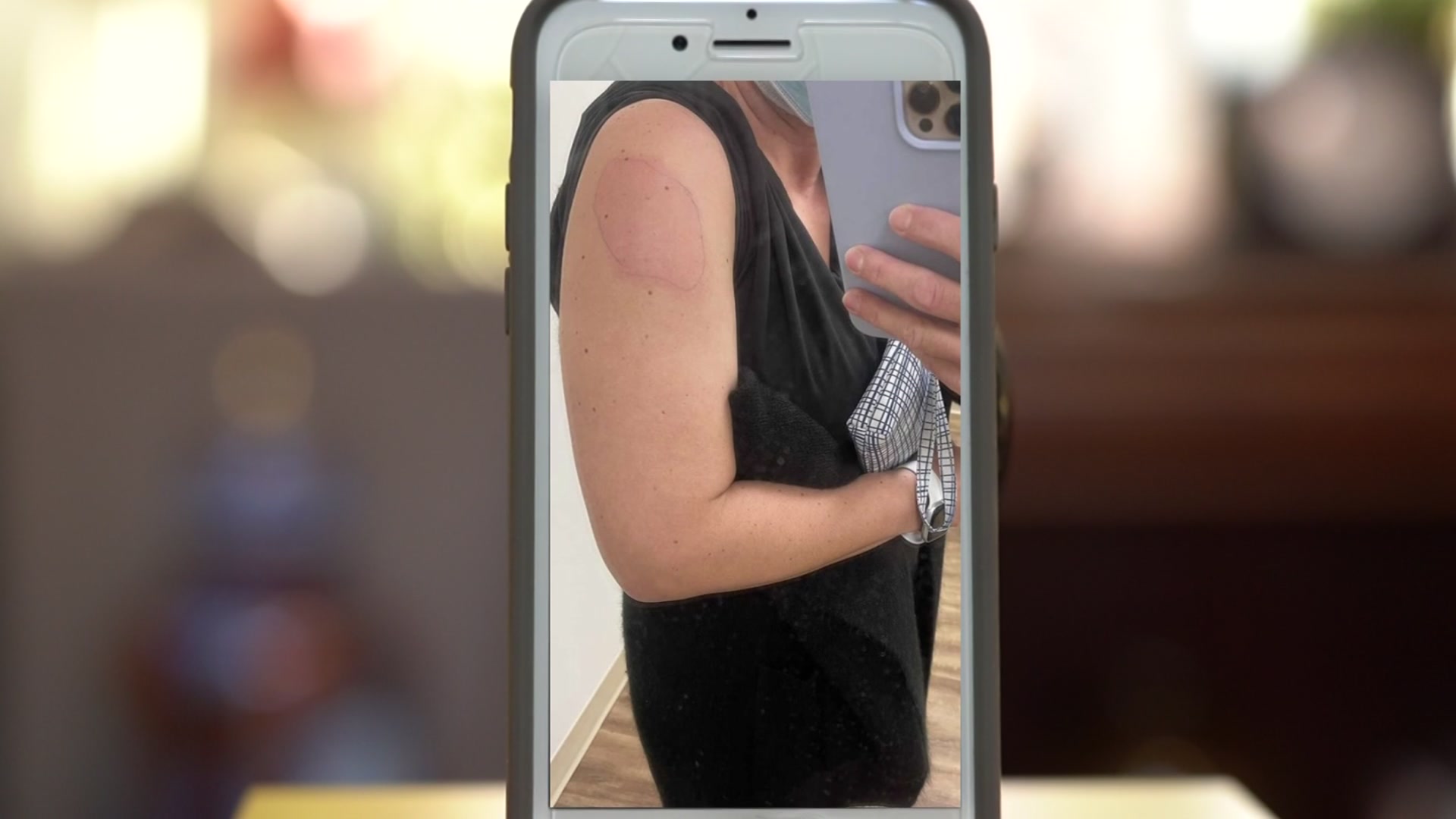
There is usually no long-term damage from seizures in young children, but they should be checked by your doctor. You should always make sure your child sees a doctor if they have a seizure. If you or your child has a seizure after a vaccination you should call 000 for an ambulance. The seizure usually lasts approximately 20 seconds and very rarely more than 2 minutes. Seizure (also known as convulsion or fit) – some children are more prone to seizures when experiencing a high fever.Thrombosis with thrombocytopenia syndrome – There has been a link between the AstraZeneca COVID-19 vaccine and a very rare condition called thrombosis with thrombocytopenia syndrome (TTS) which appears to be more common in younger adults.Some rare and serious side effects could include the following: You should seek emergency medical care immediately by calling 000 if you think you are having an allergic reaction, such as difficulty breathing, wheezing, a fast heartbeat or collapsing. The risk of developing severe reactions after receiving a vaccine is extremely rare. This can cause shivering, which can increase the body’s core temperature.Īny medication, including vaccines, may have potentially serious side effects including a severe allergic reaction, such as anaphylaxis. do not give them a bath in cool water.give them extra fluids (for example more breast feeds or more water).If your child has a persistent high temperature, see your doctor. Make sure you drink extra fluids and wear light-weight, loose clothing. If you develop a fever higher than 38.5 ☌ after a vaccination take paracetamol (not aspirin) as directed depending on your weight and age.

Your child may need extra comforting after vaccination. These symptoms usually disappear after 24 to 48 hours – if they don’t, see your doctor. These are common symptoms and do not require any treatment. Irritability, loss of appetite, sleepiness See your doctor if these symptoms are severe or persistent. If you feel light-headed or dizzy before or after a vaccination you should lie down until you feel better. This is mainly seen in adolescents and adults. You can ease the soreness at the injection site by placing a wet cloth over it. It can cause a rare, but severe illness called Reye’s Syndrome. Never give aspirin to a child or adolescent under 16. You can use paracetamol to help with pain and fever after a vaccination, remembering to carefully follow the instructions on the packet. The routine use of paracetamol at the time of vaccination is no longer recommended as today’s vaccines have fewer side effects. Read more about side effects for specific vaccines used in the National Immunisation Program (external site).


Paracetamol (not aspirin) may be used to help reduce the temperature.

WA Health patient/consumer liaison contacts.ScriptCheckWA: Western Australia’s real-time prescription monitoring system.Having a baby in a public country hospital in WA.Ambulance fees for seniors and pensioners.Assistance with travel costs to receive medical care.Telehealth – delivering virtual care closer to home.Screening mammography with BreastScreen WA.Understanding food labels for allergies.Testing or cleaning a house for drug contamination.Alcohol-based hand sanitiser – safe use and storage.Fluoride and protecting your teeth from tooth decay.


 0 kommentar(er)
0 kommentar(er)
